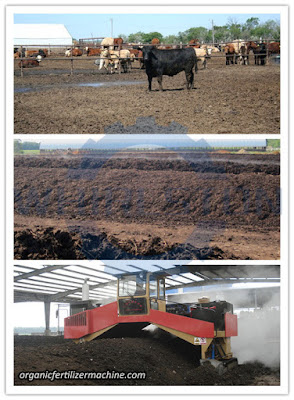Introduction to Organic Farming
 Organic farming is a method of crop and livestock production that involves much more than choosing not to use pesticides, fertilizers, genetically modified organisms, antibiotics and growth hormones. Organic production is a holistic system designed to optimize the productivity and fitness of diverse communities within the agro-ecosystem, including soil organisms, plants, livestock and people. The principal goal of organic production is to develop enterprises that are sustainable and harmonious with the environment.
Organic farming is a method of crop and livestock production that involves much more than choosing not to use pesticides, fertilizers, genetically modified organisms, antibiotics and growth hormones. Organic production is a holistic system designed to optimize the productivity and fitness of diverse communities within the agro-ecosystem, including soil organisms, plants, livestock and people. The principal goal of organic production is to develop enterprises that are sustainable and harmonious with the environment.
The general principles of organic production, from the Canadian Organic Standards (2006), include the following:
- protect the environment, minimize soil degradation and erosion, decrease pollution, optimize biological productivity and promote a sound state of health
- maintain long-term soil fertility by optimizing conditions for biological activity within the soil
- maintain biological diversity within the system
- recycle materials and resources to the greatest extent possible within the enterprise
- provide attentive care that promotes the health and meets the behavioural needs of livestock
- prepare organic products, emphasizing careful processing, and handling methods in order to maintain the organic integrity and vital qualities of the products at all stages of production
- rely on renewable resources in locally organized agricultural systems, including organic fertilizer machine and organic fertilizer production system.
Organic farming promotes the use of crop rotations and cover crops, and encourages balanced host/predator relationships. Organic residues and nutrients produced on the farm are recycled back to the soil. Cover crops and composted manure are used to maintain soil organic matter and fertility. Preventative insect and disease control methods are practiced, including crop rotation, improved genetics and resistant varieties. Integrated pest and weed management, and soil conservation systems are valuable tools on an organic farm. Organically approved pesticides include “natural” or other pest management products included in the Permitted Substances List (PSL) of the organic standards. The Permitted Substances List identifies substances permitted for use as a pesticides in organic agriculture. All grains, forages and protein supplements fed to livestock must be organically grown.
The organic standards generally prohibit products of genetic engineering and animal cloning, synthetic pesticides, synthetic fertilizers, sewage sludge, synthetic drugs, synthetic food processing aids and ingredients, and ionizing radiation. Prohibited products and practices must not be used on certified organic farms for at least three years prior to harvest of the certified organic products. Livestock must be raised organically and fed 100 per cent organic feed ingredients.
Organic farming presents many challenges. Some crops are more challenging than others to grow organically; however, nearly every commodity can be produced organically.
Growth of Organic Agriculture
The world market for organic food has grown for over 15 years. Growth of retail sales in North America is predicted to be 10 per cent to 20 per cent per year during the next few years. The retail organic food market in Canada is estimated at over $1.5 billion in 2008 and $22.9 billion in the U.S.A. in 2008. It is estimated that imported products make up over 70 per cent of the organic food consumed in Canada. Canada also exports many organic products, particularly soybeans and grains.
 The Canadian Organic Farmers reported 669 certified organic farms in Ontario in 2007 with over 100,000 certified organic acres of crops and pasture land. This is an annual increase of approximately 10 per cent per year in recent years. About 48 per cent of the organic cropland is seeded to grains, 40 per cent produces hay and pasture and about five per cent for certified organic fruits and vegetables. Livestock production (meat, dairy and eggs) has also been steadily increasing in recent years.
The Canadian Organic Farmers reported 669 certified organic farms in Ontario in 2007 with over 100,000 certified organic acres of crops and pasture land. This is an annual increase of approximately 10 per cent per year in recent years. About 48 per cent of the organic cropland is seeded to grains, 40 per cent produces hay and pasture and about five per cent for certified organic fruits and vegetables. Livestock production (meat, dairy and eggs) has also been steadily increasing in recent years.Why Farm Organically?
The main reasons farmers state for wanting to farm organically are their concerns for the environment and about working with agricultural chemicals in conventional farming systems. There is also an issue with the amount of energy used in agriculture, since many farm chemicals require energy intensive manufacturing processes that rely heavily on fossil fuels. Organic farmers find their method of farming to be profitable and personally rewarding.
Why Buy Organic?
Consumers purchase organic foods for many different reasons. Many want to buy food products that are free of chemical pesticides or grown without conventional fertilizers. Some simply like to try new and different products. Product taste, concerns for the environment and the desire to avoid foods from genetically engineered organisms are among the many other reasons some consumers prefer to buy organic food products. In 2007 it was estimated that over 60 per cent of consumers bought some organic products. Approximately five per cent of consumers are considered to be core organic consumers who buy up to 50 per cent of all organic food.
Note: this article comes from omafra.gov.on.ca



Comments
Post a Comment